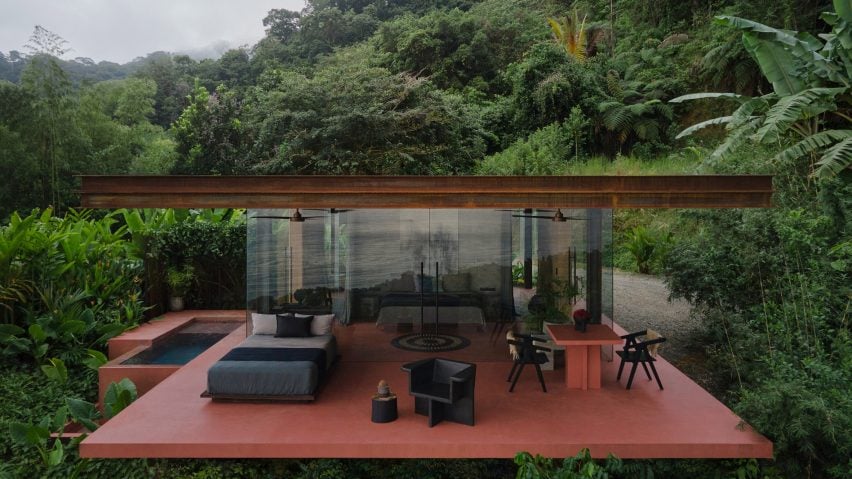
Formafatal creates pair of rammed-earth villas in Costa Rica
Formafatal has constructed twin villas out of rammed earth on a jungled hillside in Playa Hermosa, Costa Rica, which open to the Pacific Ocean with expansive frameless glass.
Named Achioté, two 95-square metre villas are embedded in a steep 11,000-square metre plot of jungle, 300 metres above the sea and are, according to the studio, the "very first rammed earth implementation" in Costa Rica.
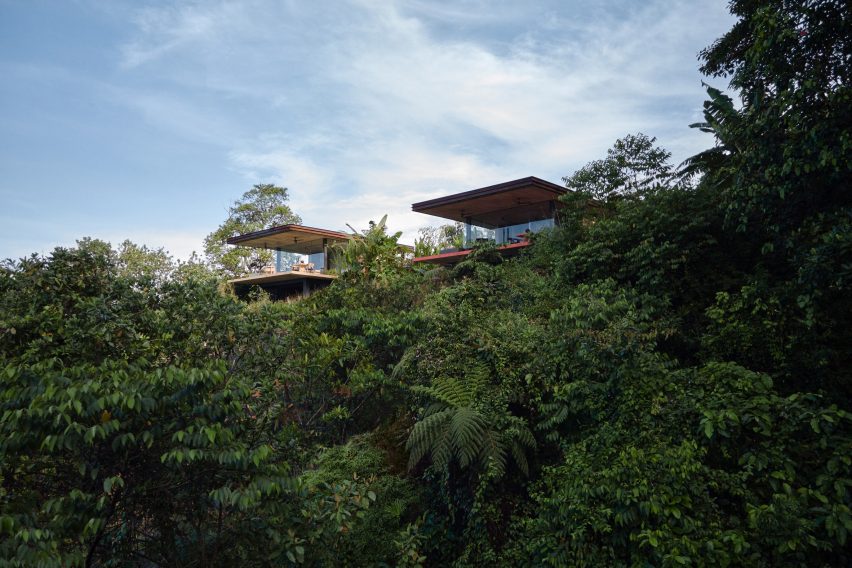
Dagmar Štěpánová, founder of the Czech Republic- and Costa Rica-based studio Formafatal, completed the villas last year and served as the architect, project manager and construction manager, as well as a co-investor of the project.
"My intention was to design sustainable houses with biophilic interiors," said Štěpánová. "The architecture of villas is deliberate with its thin and sharp lines in contrast to lush tropical vegetation, but the chosen materials and colors coincide perfectly with the surroundings."
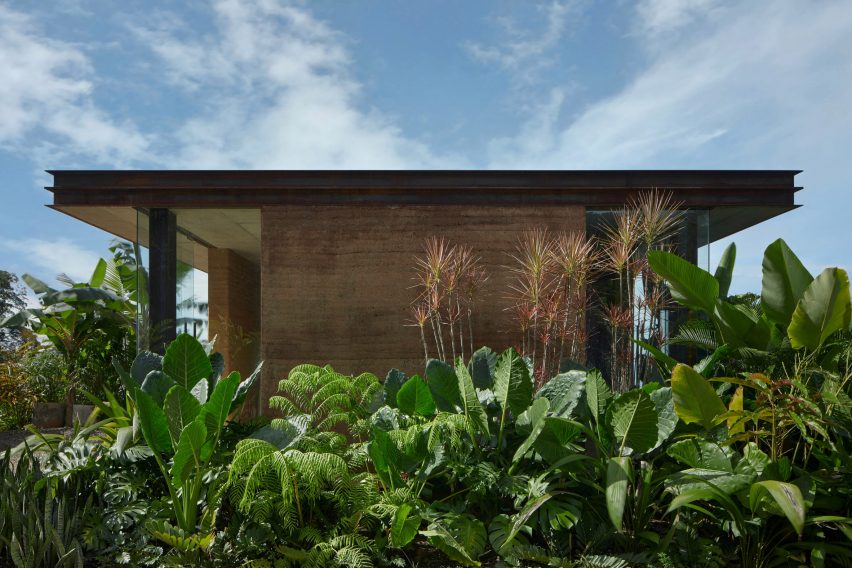
The identical rectangular plans have only three solid exterior walls, constructed of rammed clay that was excavated from the site.
Brazilian expert Terra Compacta was brought in due to Costa Rica's "lack of experience" with the construction method.
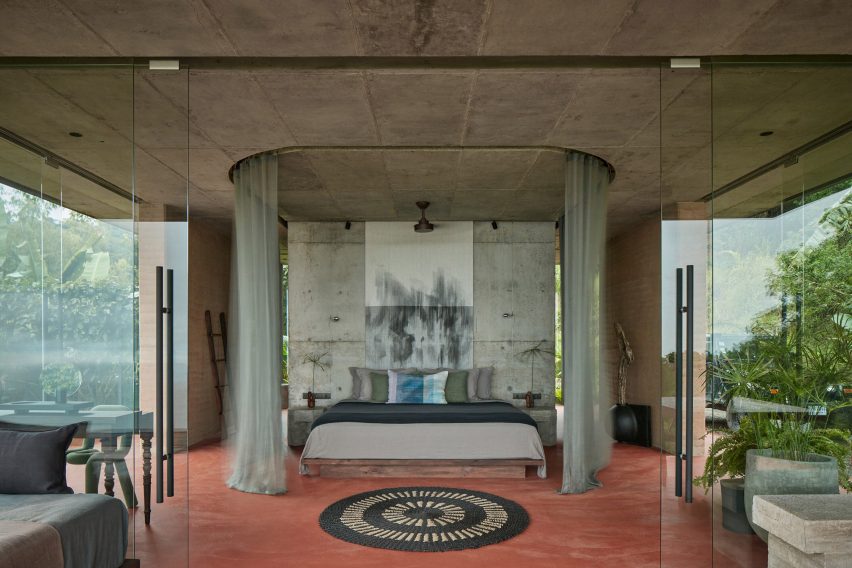
The rammed earth perimeter bearing walls – in tandem with structural H-columns – rise up from the concrete foundation and support the monolithic concrete ceiling slab, which is ringed by a pair of raw steel channels visible along the exterior roofline.
The rest of the enclosure is floor-to-ceiling, frameless glass that recesses into grooves in the ceiling and extends the interiors out to the Pacific Ocean.
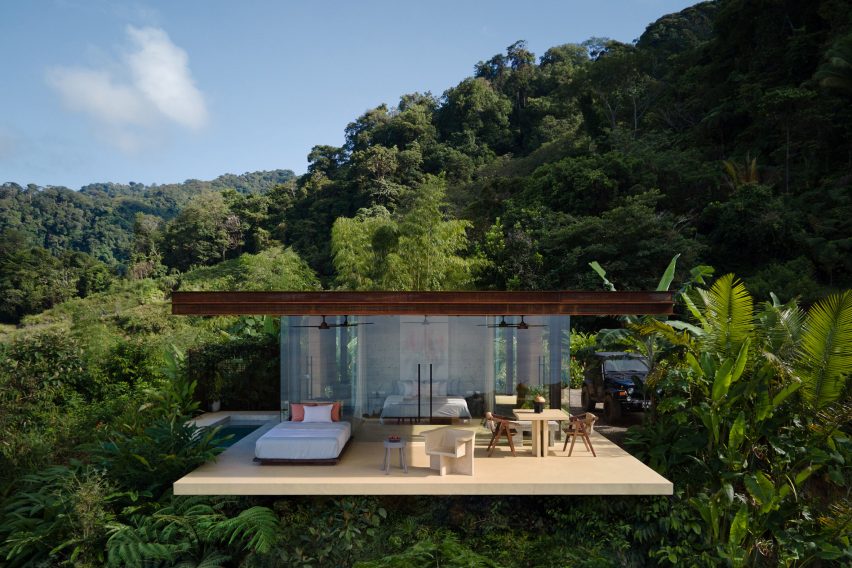
The simple floor plan contains a bedroom, bathroom and kitchen, which are surrounded by an open-air terrace that serves as the primary living space and opens to an infinity pool.
Form, construction and orientation are where the twin villas' similarities end; the interior colour concepts reflect the site's energies as perceived by the architect prior to construction.
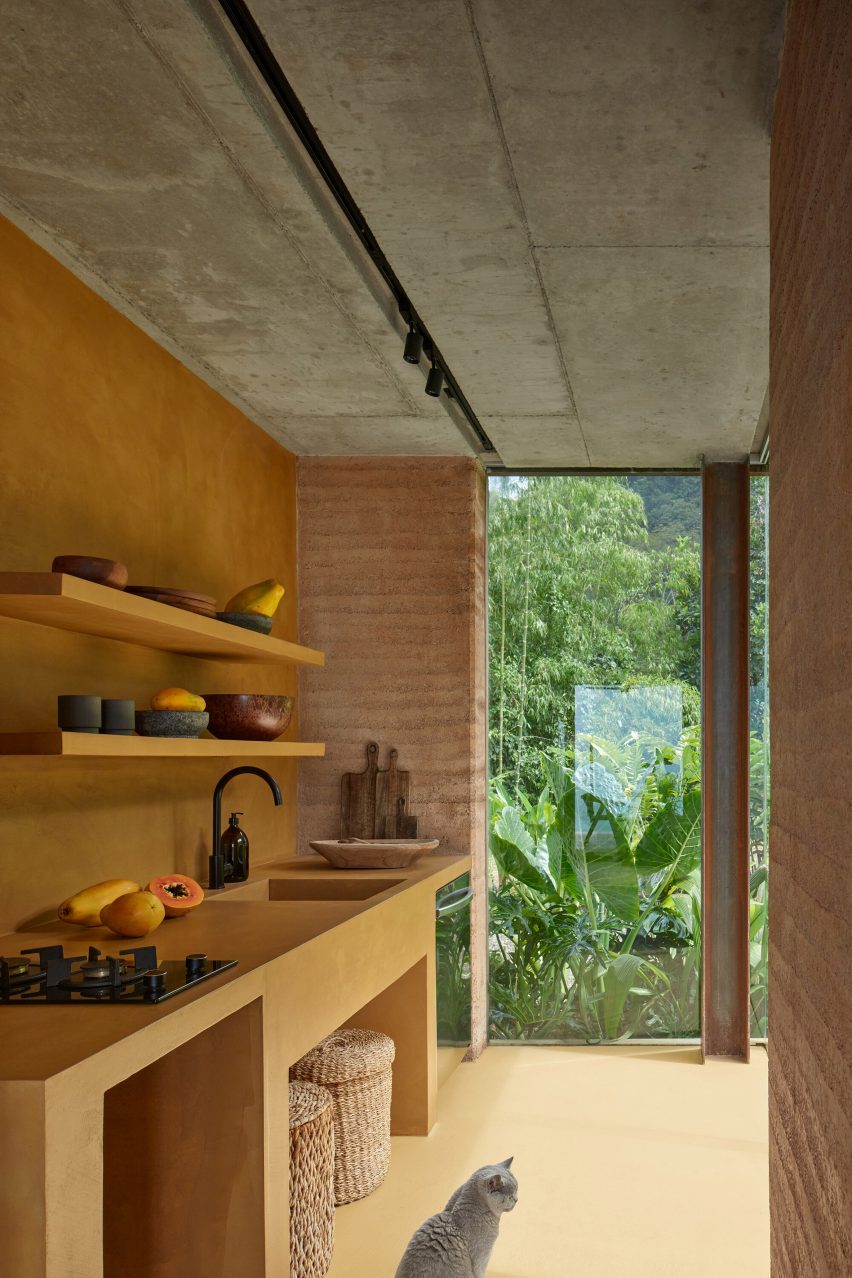
"Jaspis, the bright villa, a reflection of yin energy, connects to the ocean and the sky," the studio said. "While Nefrit, the dark villa, a reflection of yang energy, connects to the ground and the jungle."
The Jaspis villa utilizes warm sand shades, while 12 metres away, the Nefrit villa references the colour of local soil through terracotta and charcoal shades. The concrete floors have distinct non-slip cement screed patterns.
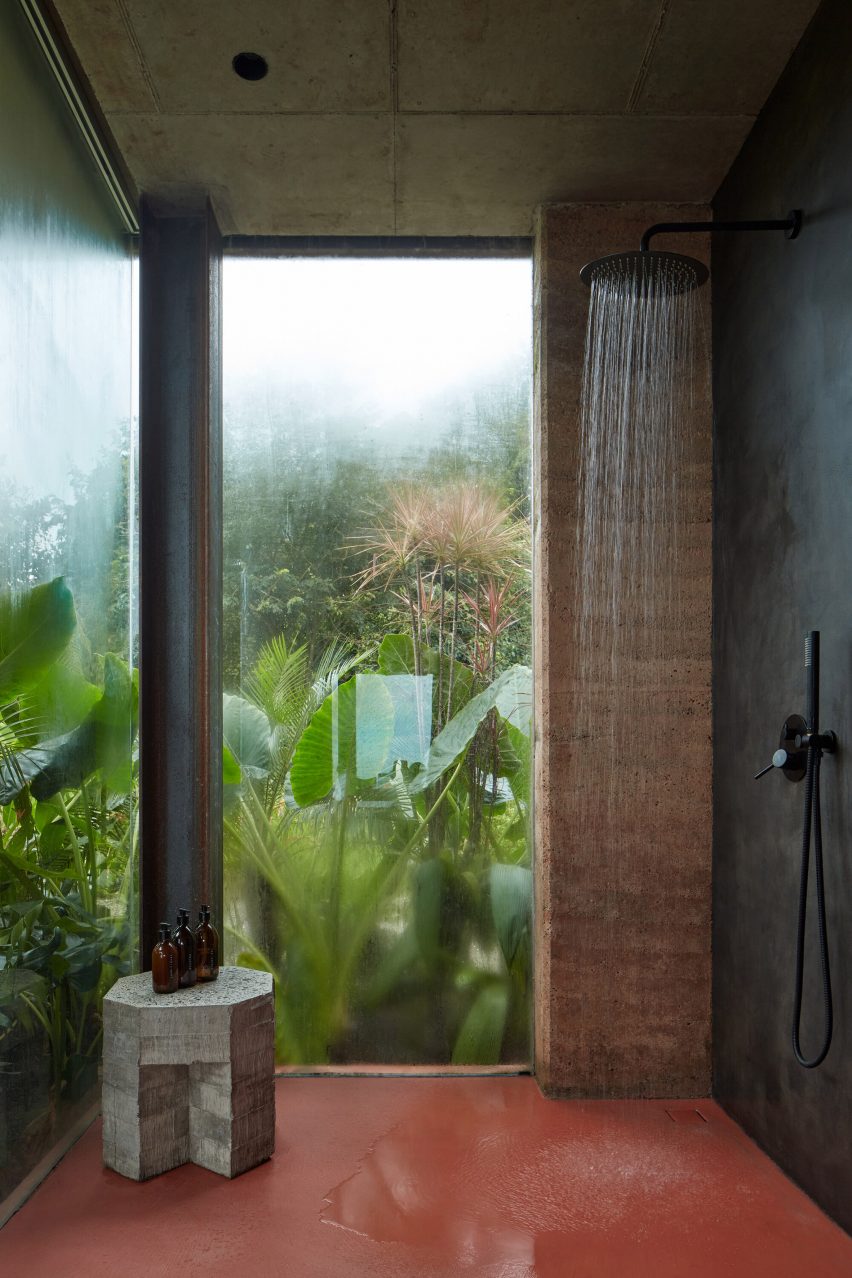
The interior fixtures are also a juxtaposition of light and weight.
A thin sliding fibre-cement panel in the bathroom is the only interior door, and delicate mosquito nets and linen curtains drape around the bed from a track hidden in the ceiling.
Meanwhile, the bathroom and kitchen counters become part of the concrete monolith, and heavy concrete solitaires like bedside tables and benches are inspired by Belgian design.
"Other furniture, luminaires, accessories and art were carefully selected with regard to originality, often directly from designers across all continents," the studio said.
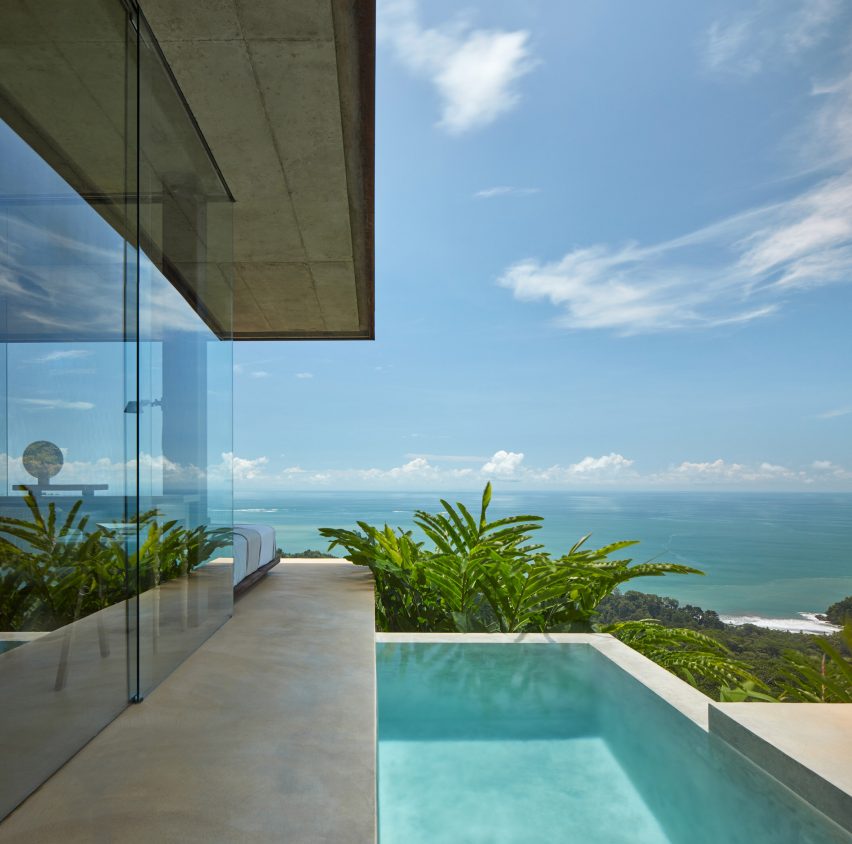
In 2020, Formafatal teamed up with Refuel Works to create the nearby Art Villa concrete rental home – the project that led to Dagmar Štěpánová's relocation from the Czech Republic and the studio's corresponding expansion to Costa Rica.
The photography is by BoysPlayNice.
Project credits:
Architecture and Interiors: Formafatal, Dagmar Štěpánová
Rammed earth walls: Terra Compacta, Daniel Mantovani
Statics: Ch. Vargas
Garden: Dagmar Štěpánová
Construction: Willy Jeferson Céspedes Vargas + local workers
Concrete screeding: Different Design, Pavel Trousil
Graphic design: Zuzana Vemeová